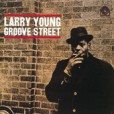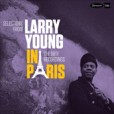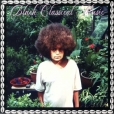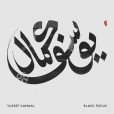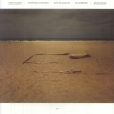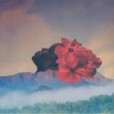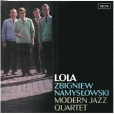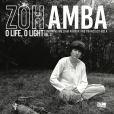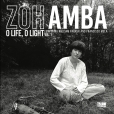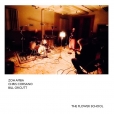Your basket is empty

Wow!
Newly discovered radio recordings by the great jazz organist, from 1964-5, alongside Nathan Davis (at the same time as Happy Girl), Woody Shaw, Billy Brooks and co.
Fifteen minute versions of Talkin’ About JC and Wayne Shorter’s Black Nile; twenty minutes of Shaw’s Zoltan (for Bartok’s mate Kodaly)... Luny Tune… Mean To Me…
Handsomely presented, too, with an excellent, 67-page booklet.
‘With a new lineup including multi-instrumentalists Kwake Bass and Wu-Lu, who are also the producers and arrangers. Horns, played by Soothsayers’ founders saxophonist Idris Rahman and trumpeter Robin Hopcraft, are included on just two of the ten tracks…
‘McFarlane’s spellbinding, crystalline voice continues to be acoustically recorded and reproduced and the primary focus of attention. Her lyrics, as before, are strong on message and relate to the experience of being a black person in Britain, touching on race, identity and the legacy of colonialism.
‘McFarlane’s performances aside, what binds Arise and Songs of An Unknown Tongue together is her embrace of her Jamaican heritage. What makes them distinct from each other is how that heritage is referenced in the material, lyrically and instrumentally. Born and brought up in London, McFarlane made an extended trip to Jamaica in 2018, when she penetrated further into the country’s folk culture and spiritual traditions than she had been able to do on previous, shorter visits. She devoted much of her time to researching the African-derived rhythms that shape the country’s folk music. On her return to London she worked with Wu-Lu and Kwake Bass to present them in a modern electro-acoustic context…
‘It looks forward to a brighter future while acknowleding the past and confronting present. It is deep, immaculately crafted and beautiful.’
(Chris May, All About Jazz).
From 1964, a fresh, invigorating, up-for-it, personal take on happening US jazz — Coltrane in particular — blending in themes from Polish folk music. Try the rollicking Piatawka, with its evocation of highlander bagpipes. Scorcher!
Multi-instrumentalist Namyslowski was an alumnus of Krystof Komeda’s ground-breaking quintet. In the early sixties, he formed the Jazz Rockers with Micha Urbaniak, and in 1962 both joined The Wreckers, playing the Newport Jazz Festival. In 1964 his own Modern Jazz Quartet toured throughout England, Scotland, and Wales. “We had songs like Piatawka in the programme, inspired by Polish mountain folklore… These were the forms that had never been heard there before… Not only was I a musician from behind the ‘Iron Curtain’, but it also turned out that this musician had his own voice and showed something innovatory.”
Pianist Wlodzimierz Gulgowski plays a blinder, too; nodding to both Chopin and Mal Waldron. (A decade later he hooked up with Urbaniak, for the LPs Fusion III and Funk Factory.)
Lola was recorded in London; produced by Mike Vernon, who founded the Blue Horizon label, and produced Fleetwood Mac and David Bowie, amongst others. For the cover shot, Decca commissioned the same photographer as for the first Rolling Stones LP, to follow suit. “We are in the same sweaters from Marks & Spencers, only each in a different colour.”
‘In an age when any old modal groove with a tambura drone pasted on is marketed as spiritual jazz, Kingsport, Tennessee born Zoh Amba is the real deal…
‘Opening track Fruit Gathering is a brief aubade to the Holy Spirit, weeping with a tremulous vulnerability recalling Ayler at his most tender and melodic… On the album’s more expansive tunes, her quartet plugs into the tumultuous swells and raging energy of late 1960s US free jazz exemplified by players such as Frank Wright and Noah Howard, which built on the intensity of John Coltrane’s later, spiritually driven exhortations. Here, Amba pushes past low, guttural blasts to altissimo shrieks and the screaming multiphonics pioneered by Pharaoh Sanders during his tenure with Coltrane.
‘On Champa Flower, Amba connects with her Tennessee roots, picking and strumming at an acoustic guitar while cymbals shimmer and bass throbs. Joining the dots between folk, American primitive, pastoral psychedelia and 2000s free folk, she proposes an alternative living continuum of American devotional music. Most affecting, though, are the three solo meditations on which she plays piano with her right hand and sax with her left. Captured in lo-fi on a Zoom recorder, and ending abruptly as though suddenly out of batteries, they’re intimate glimpses of a soul in motion’ (Daniel Spicer, The Wire).
